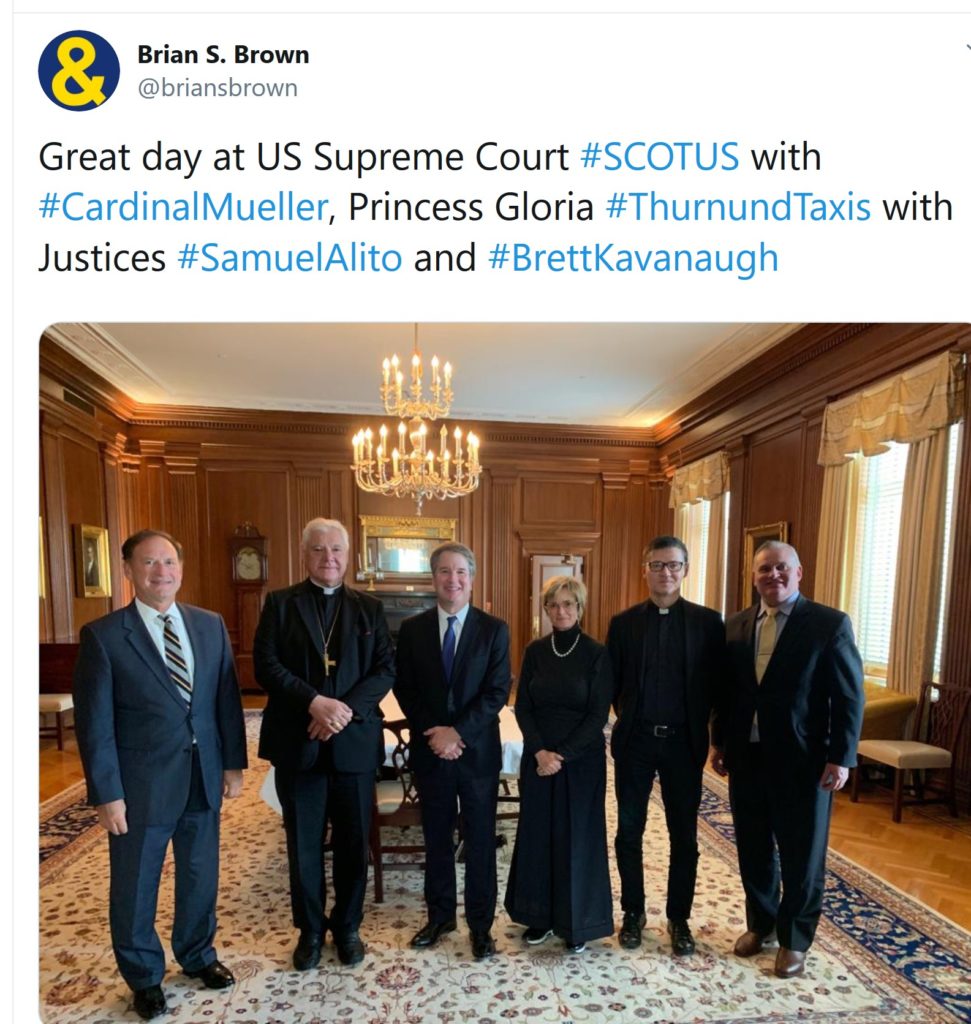No standing, no problem

The case the Republican justices on the Supreme Court will use to do what they’ve done to the Voting Rights Act to the Civil Rights Act has no business being in a federal court because the state of Colorado has not required anyone to do anything:
The true origin story of 303 Creative is much less sympathetic than the lawyer-crafted narrative. Before this litigation, Lorie Smith appeared to be a normal website designer who advertised her services to all potential customers. In 2016, after ADF took her on as a client, she rebranded as a conservative Christian who channeled her faith in God through her work. Indeed, her revamped website included language seemingly finessed to transform her into a First Amendment test case, explaining that her “expressive content … communicate[s] ideas or messages.” Also worth noting: No same-sex couple has ever asked Smith to make them a wedding website; in fact, she has never made a wedding website for anyone. Her work to date focuses on local politicians, dog breeders, contractors, and houses of worship—not celebrations of life events. Nonetheless, ADF sued Colorado on Smith’s behalf in 2016, challenging a state law that bars anti-gay discrimination in public accommodations. Smith one day might be asked to make a same-sex couple’s website, ADF asserted. And when that day comes, she wants the right to say no.
303 Creative was one of many cases that ADF took on after 2016 to undermine LGBTQ non-discrimination laws. The organization was trying to argue that these laws violate the First Amendment, at least when applied to wedding goods and services. One such case, Masterpiece Cakeshop, reached the Supreme Court—but it was not resolved on the merits in the way ADF preferred. Instead, the justices got tripped up on the question of whether baking a cake constituted free speech, and decided it on other grounds. Others involved similar gray areas—a florist, a photographer—and fizzled out in lower court. 303 Creative had the benefit of involving “pure speech” rather than what lawyers call “expressive conduct” (like making a floral arrangement). ADF wanted this as a black-and-white dispute about Colorado compelling Smith to express a message in support of same-sex marriage that infringes on her conscience.
But 303 Creative is not, in fact, that case. Why? Because Colorado law does not compelSmith to create a wedding website for a same-sex couple, or for anyone else. It only insists that once Smith has designed a wedding website, she must allow same-sex couples to purchase that product. In essence, Colorado says she must sell her website template to all customers, regardless of their identity. She need not create a new template or “speak” in support of any marriage. At most, if she makes a wedding website for Henry and Fiona, she must sell the same template to Henry and Frank. As Colorado Solicitor General Eric Olson acknowledged, she could even make a template that (for some reason) condemned same-sex marriage. This speech is permitted. Colorado targets only the conduct of refusing to sell that product to gay people.
Standing and ripeness rules are made to broken, and the beauty of a case with no actual material facts is that lower courts will be able to make a lot of use out of the fake-minimalist precedent you create out of nothing:
All of this raises the obvious question: If 303 Creative is not a real case, why did the Supreme Court take it up to begin with? Two probable reasons come to mind. First, the facts are more favorable for conservatives than comparable conflicts like Masterpiece Cakeshop—because nobody felt the sting of Smith’s discrimination (yet). Masterpiece Cakeshop pitted the baker Jack Phillips against his customers, Charlie Craig and Dave Mullins. Both sides were represented: the business owner who sought a license to discriminate and the couple who faced the pain of getting turned away.
Here, ADF’s lawyers manufactured a case in which there are no victims like Craig and Mullins. That strategy let them transform Smith into an ersatz victim, one who secured gentle, empathetic coverage from the mainstream press. Much like how women were erased from Dobbs, gay people have been erased from 303 Creative. Their absence left space for ADF to paint Smith as an underdog, a fighter—the hero of the story. The Supreme Court can adopt that narrative and depict its decision as a triumph for constitutional rights without the sorrowful objections from the actual victims, since there are none.
But the thing is, there will be soon enough. And that may be another reason why SCOTUS took up 303 Creative: It provides the opportunity to lay down a seemingly modest legal principle that lower courts can expand to its logical limits and beyond. A decision for Smith will unleash increasingly extreme assaults on civil rights law by Donald Trump’s judges. Trump judges are already champing at the bit to legalize broad swathes of discrimination. 303 Creative may hand them a new weapon against civil rights law, much like SCOTUS’ decision in Bruen let them smash all manner of gun restrictions. It might start with a website designer, but the court’s holding will swiftly spread to bakers, florists, photographers, then venue owners, hotels, caterers, hair stylists, jewelers—any business that can claim its good or services would be used to “express” support for same-sex marriage. This principle might eventually extend to discrimination against all gay people, not just those seeking to get married, under the theory that serving them would require “expressing” support for homosexuality.
A real court of law wouldn’t act this way, but this is the Alito Court that we’re talking about here: do what thou wilt.


